Last weekend Republican presidential candidate Donald Trump told reporters that Ghazala Khan, the mother of a fallen U.S. soldier who accompanied her husband on stage at the DNC, was silent because of her identity as a Muslim woman. The clapback was nearly instantaneous: Muslim women around the world asserted their voices this week with #CanYouHearUsNow, puncturing the stereotype that Muslim women are forced to be silent.
Chicago’s Muslimah bloggers are the perfect example. Some with tens of thousands of fans, they shatter misconceptions as writers, thinkers, and comedians, offering musings on fashion, love, design, and identity.
So if you are curious whether Muslim women are Tindering (they are), where to ethically source your summer cold shoulder trend, or simply want a pick-me-up in the form of hilarious memes (often involving Faiza Rammuny’s cats), these ladies have you covered.
Beyond their faith, they want you to know they are here to tell their stories, their way.
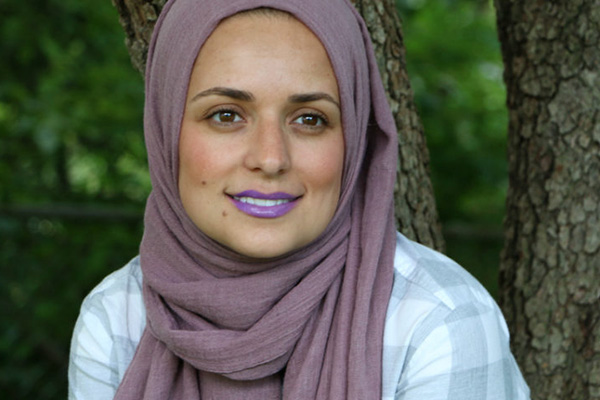
1. Mariam Sobh, Hijab Trendz, @hijabtrendz
Mariam Sobh already broke a few glass ceilings: she is America’s first hijabi anchor and reporter on U.S. commercial radio (now at WBBM) and her popular blog Hijab Trendz, which she started in 2007, is one of the first hijab fashion blogs. Almost a decade later, her millions of readers have made the journey with her through marriage, kids, and work as an award-winning reporter chasing down stories in Chicago.
Blogging became an outlet for Sobh after she learned after graduate school that she would have little luck landing her dream job as a television anchor because of her hijab. “I’m talented and good at reporting, but the most frustrating part was the networks missed out on someone who comes from a diverse background, who could report and bring stories they might not otherwise have access to,” she says. Almost ten years later, U.S. television is yet to hire a hijabi anchor for network news.
“There’s Muslim women everywhere, but you don’t see us on television. Why are we always never seen, and if we are, it’s not in a positive way where we are educated, bold, and fearless?” she says. “There’s plenty of Muslim women doing amazing things, but that’s never shown.”
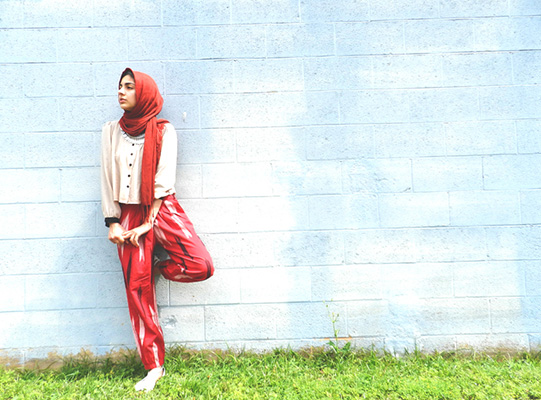
2. Hoda Katebi, JooJoo Azad, @hodakatebi
Hoda Katebi loves intersectional social justice, ethical fashion, and patterns. The blogger, who is most comfortable in gaudy, lively prints from hijab to toe, says her style is inspired by her Iranian heritage. Despite masterfully juggling her roles as photographer, blogger, activist, and now fashion designer (her ultra-minimalistic line is coming out soon), the feminist hijabi still finds time to reply to her readers on her blog JooJoo Azad, which means “free bird” in Farsi.
The 21-year-old’s style and social action blog uses fashion and aesthetics to normalize the hijab in the fashion industry, promotes ethically sourced fashion, and tackles social issues such as cultural appropriation. The recent University of Chicago graduate this year published the first-ever book on Iranian street style, Tehran Streetstyle, to push mainstream media’s representation of Iranian fashion and women beyond the black chador.
Hoda is all about changing outdated status quos and sees Muslim women themselves as the key to more diverse representation in the media. “We need more Muslim women in the media. You can never trust your oppressor to tell your narrative,” she says.
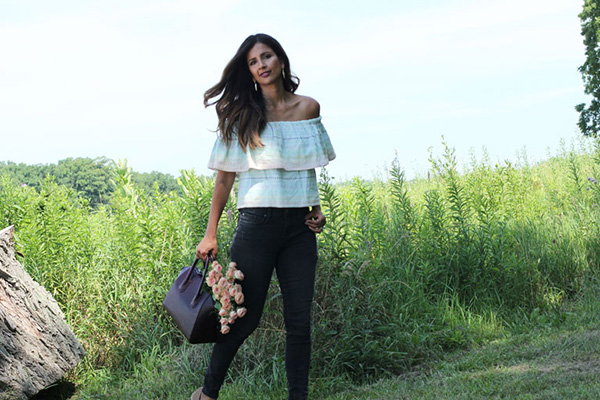
3. Zahra Sandberg, Love Zahra, @Zahra_Sandberg
Zahra Sandberg is a one-time corporate exec turned personal style blogger running Love Zahra. Sometimes sophisticated bohemian, sometimes all-out glam, her clothes and home décor are unabashedly influenced by her Pakistani roots: vibrant and full of vivid hues with a true appreciation for artisan craftsmanship.
But beyond style, Zahra wants her readers to shop with intention and awareness. Her popular Ethical Companies List espouses socially conscious shopping. “After years of knowing what the true cost of fast fashion meant in terms of its negative effect on both the people working in horrible factory conditions around the world, as well as the carbon footprint on the Earth, I could no longer deny my internal conflict about shopping fast fashion,” says Zahra about her efforts.
Despite being at the top of her game, Zahra feels there’s still a lot of work to be done in challenging female Muslim stereotypes. A better representation, she says, “would be a racially and culturally diverse group, covered and not covered, including everyone you might encounter in life, from your family doctor to your next-door neighbor, your child's schoolteacher, a stay-at-home mom, or a stand-up comedian. Any normal representation of a female could accurately represent a Muslim female.”
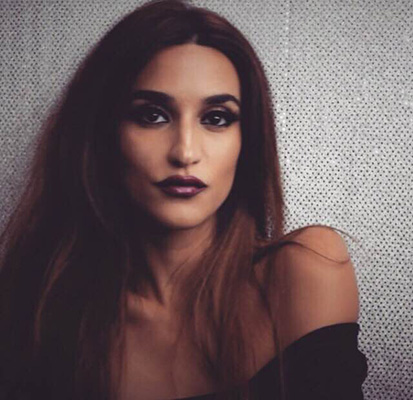
4. Faiza Rammuny, Expired N Fabulous, @expirednfabulous
In just one day, Faiza Rammuny will give advice via email to a heartbroken girl in Louisville, answer dating questions in Instagram tags from a man in Japan, and SnapChat with a girl in Moscow who just canceled her engagement. Such is the life for the blogger, comic meme star, and Snapchat personality-cum-relationship columnist who has a global following. Some of her 40,000 Instagram followers named her “the Muslim Carrie Bradshaw,” in line with her knack for relationship advice and passion for dressing to the nines.
It’s fitting: she’s funny, sexy, and an open book on her experience in the trenches of modern love. Her blogging began with 51 Fridays, a blog on her Arab father’s mission over 51 weekends with 51 different suitors to find the perfect arranged marriage before her 25th birthday, aka “The Day It All Ends for unmarried Arab women,” she jokes. Post-“expiration,” she’s still on the hunt for Mr. Right in her second blog, Expired N Fabulous, with her followers, known as “penguins,” in tow.
There’s just one thing Faiza wants to make clear: “Not every Muslim woman is oppressed, silenced, nor an object to be pitied by anyone. We’re strong, opinionated, confident women who have voices that we’re not afraid to made heard.”
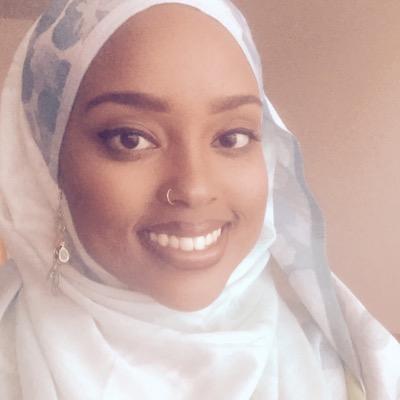
5. Ihssan Tahir, MUSLIMnLOVE, @IhssanTahir
Globetrotter Ihssan Tahir was taught to listen more than talk, growing up in a multicultural household in Switzerland. That power of observation is clear in her candid and sensual prose on the intersections of love, race, and identity in Chicago.
“Many people are curious about the Muslim woman experience and the Black woman experience. I offer both from a raw and authentic perspective. Everyone likes honesty. Everyone likes to read about topics they can relate to,” she says, adding that black Muslim women face common experiences in navigating womanhood. As a self-described "Muslimah SisterQueen" and a nurse specializing in emergency and trauma medicine, she writes on everything from Tindering while Muslim to dowries in her quest for true love.
She believes the media's portrayal of Muslim women in America will change when more Muslim women own their narrative. “First and foremost, Muslim women are not the sole tellers of their story within media outlets. If our stories were respected and we were given the space to narrate them, then our portrayal would change significantly,” she says.


